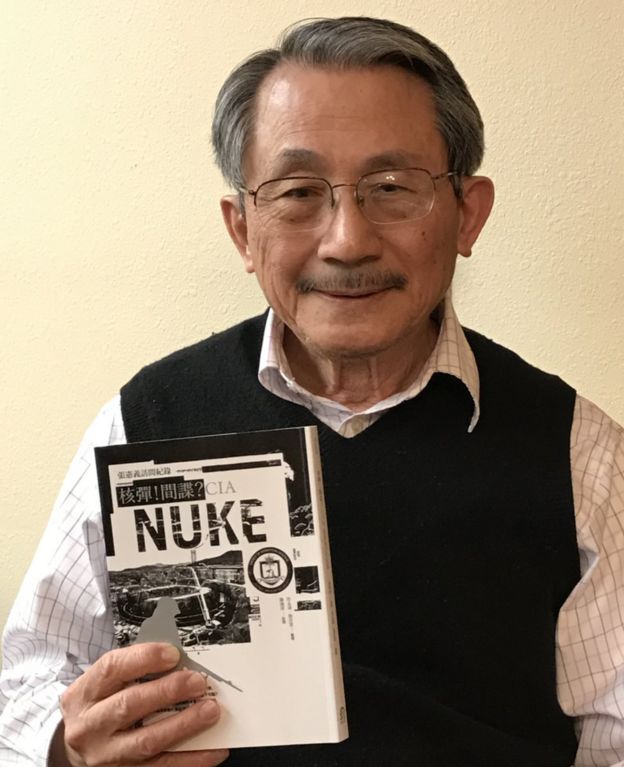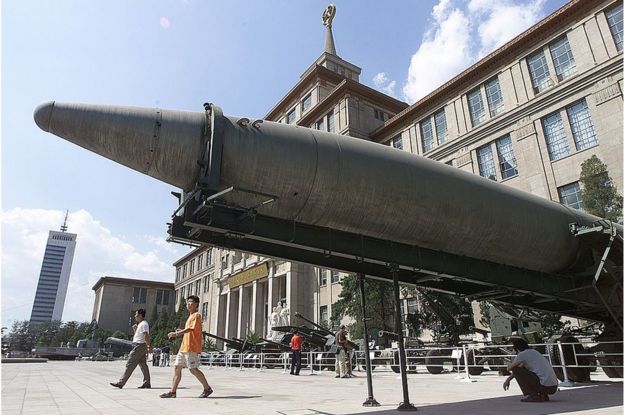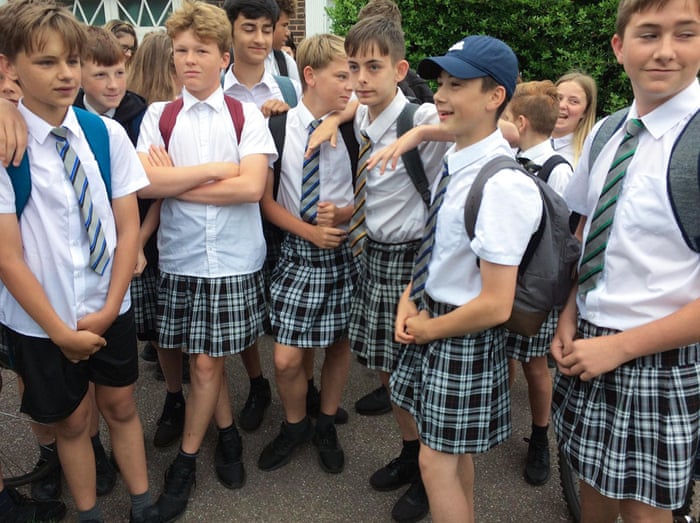In 1988 Taiwan was racing to build
its first nuclear bomb, but one military scientist put a stop to that
when he defected to the United States and exposed those plans. This is
the story of a man who insists he had to betray his country in order to
save it.
To this day, critics consider Chang Hsien-yi a traitor - but he has no regrets.
"If
I can ever do it all over again, I will do it," says the calmly defiant
73-year-old, speaking from his home in the US state of Idaho.
The
former military colonel has been living there since 1988 when he fled
to the US, a close ally of the island, and this is his first substantial
interview about that time.
It might seem a perplexing turn of
events given the close relationship the US has with Taiwan, but
Washington had found out that Taiwan's government had secretly ordered
scientists to develop nuclear weapons.
Taiwan's enemy, the
Communist government of China, had been building up its nuclear arsenal
since the 1960s, and the Taiwanese were terrified this would be
unleashed on the island.
Taiwan separated from China after the
Chinese Civil War in 1949. To this day China considers Taiwan a
breakaway province and has vowed to reunify with the island, by force if
necessary.

The
leadership of the island was also in an uncertain phase - its
president, Chiang Ching-kuo, was dying, and the US thought that General
Hau Pei-tsun, whom they saw as a hawkish figure, would become his
successor.
They were worried about a nuclearisation of the Taiwan Strait and
bent on stopping Taiwan's nuclear ambition in its tracks and preventing a
regional arms race.
So they secretly enlisted Mr Chang to halt Taiwan's programme.
When
Mr Chang was recruited by the CIA in the early 1980s, he was the deputy
director at Taiwan's Institute of Nuclear Energy Research, which was
responsible for the nuclear weapons programme.
As one of Taiwan's key nuclear scientists, he enjoyed a life of privilege and a lucrative salary.
But
he says he began questioning whether the island should have nuclear
weapons after the catastrophic Chernobyl accident in 1986 in the former
Soviet Union.
He was convinced by the Americans' argument that
stopping the programme would be "good for peace, and was for the benefit
of mainland China and Taiwan".
"This fit into my mindset very much," says Mr Chang. "But the most
important reason why I agreed is that they went to great efforts to
assure me they would ensure my safety."
The next task was getting him and his family out.
Defection
At that time, military officials could not leave Taiwan without permission.
So, Mr Chang first ensured his wife and three young children's safety by sending them to Japan for a holiday.
His
wife, Betty, says she had no clue about her husband's double life. They
had only talked about the possibility of him accepting a job in the US.
"He told me this was a trial to test how easy I could get out from Taiwan and to see how much luggage I could pack," she says.
Mrs Chang left on 8 January 1988 with their children, excited to visit Tokyo Disneyland.
The
very next day, Mr Chang took a flight to the US using a fake passport
provided by the CIA. All he had with him was some cash and a few
personal possessions.
Contrary to previous reports, he says he did not take a single document with him when he left Taiwan.
"The American government had all the evidence, they just needed someone - me - to corroborate it."
Meanwhile
in Tokyo, Betty Chang was approached by a woman who handed her a letter
from Mr Chang. That was the moment she discovered her husband was a CIA
spy and had defected.
"It said 'You will never go back to Taiwan and from Japan you will go to USA'... that was a surprise for me.
"I just cried when I knew I could no longer go back to Taiwan," says Mrs Chang.
The family was bundled into a plane headed for Seattle, where they were met by Mr Chang at the airport.
The
Changs were later put in a safe house in Virginia, due to fears he
would be assassinated by Taiwanese agents or patriotic extremists.
Within
a month, the US succeeded in pressuring Taiwan to end the programme,
using the intelligence it had collected and Mr Chang's testimony.
Taiwan was believed to be just one or two years from completing a nuclear bomb.
Setting the record straight

Mr
Chang has remained silent for decades. But with his recent retirement
he now wants to set the record straight with a memoir, titled Nuclear!
Spy? CIA: Record of an Interview with Chang Hsien-yi.
The book,
written with academic Chen Yi-shen and published in December, has
reignited a debate about whether Mr Chang did the right thing for
Taiwan.
Some praise him for preventing a potential nuclear war. Others see
his actions as denying Taiwan the weapons it needed for self-defence and
survival.
Even those in Taiwan's ruling Democratic Progressive
Party (DPP), which officially opposes the development of nuclear energy
and weapons, take a dim view of Mr Chang's actions.
"Regardless of
what your political views are, when you betray your country, it's not
acceptable... it cannot be forgiven," said the DPP's Wang Ting-yu,
chairman of the parliament's foreign affairs and defence committee.
But
Mr Chang insists he feared then that ambitious Taiwanese politicians
would use nuclear weapons to try to take back mainland China.
He
claims Madame Chiang Kai Shek, the stepmother of dying President Chiang
Ching-kuo, and a group of generals loyal to her had even gone so far as
to set up a separate chain of command to expedite the development of
nuclear weapons.
"They said they wouldn't use it, but nobody believed it," says Mr Chang, adding that the US certainly did not.
Nowadays,
there may still be politicians who could be tempted to use such
weapons, this time to pursue Taiwan's formal independence from China at
whatever cost, he says.
But the DPP's Mr Wang dismisses this notion. "We absolutely don't consider this, we don't even think about it," he said.
Over the years some Taiwanese presidents have hinted at a desire to
reactivate the island's nuclear weapons programme, but these suggestions
have been quickly quashed by Washington's objections.
Still, the
island is widely considered to have the ability to make nuclear weapons
quickly if needed. China has in recent years threatened to attack if
Taiwan ever deployed nuclear weapons.
'I love Taiwan'
Following
his defection, Taiwan's military listed Mr Chang as a fugitive. But
even after his arrest warrant expired in 2000, he has not returned to
Taiwan and does not plan to.
He does not want to deal with criticism he is sure he would face, and the negative impact that would have on his family there.
In 1990, they were permanently resettled in Idaho, where Mr Chang
worked as a consulting engineer and scientist at the US government's
Idaho National Laboratories until he retired in 2013.
He says his only regret is that he was not able to see his parents before they passed away.
"You don't have to be in Taiwan to love Taiwan; I love Taiwan," says Mr Chang.
"I am Taiwanese, I am Chinese. I don't want to see Chinese people on both sides of the Taiwan Strait killing each other."
BBC News



 The
leadership of the island was also in an uncertain phase - its
president, Chiang Ching-kuo, was dying, and the US thought that General
Hau Pei-tsun, whom they saw as a hawkish figure, would become his
successor.
The
leadership of the island was also in an uncertain phase - its
president, Chiang Ching-kuo, was dying, and the US thought that General
Hau Pei-tsun, whom they saw as a hawkish figure, would become his
successor. Mr
Chang has remained silent for decades. But with his recent retirement
he now wants to set the record straight with a memoir, titled Nuclear!
Spy? CIA: Record of an Interview with Chang Hsien-yi.
Mr
Chang has remained silent for decades. But with his recent retirement
he now wants to set the record straight with a memoir, titled Nuclear!
Spy? CIA: Record of an Interview with Chang Hsien-yi.